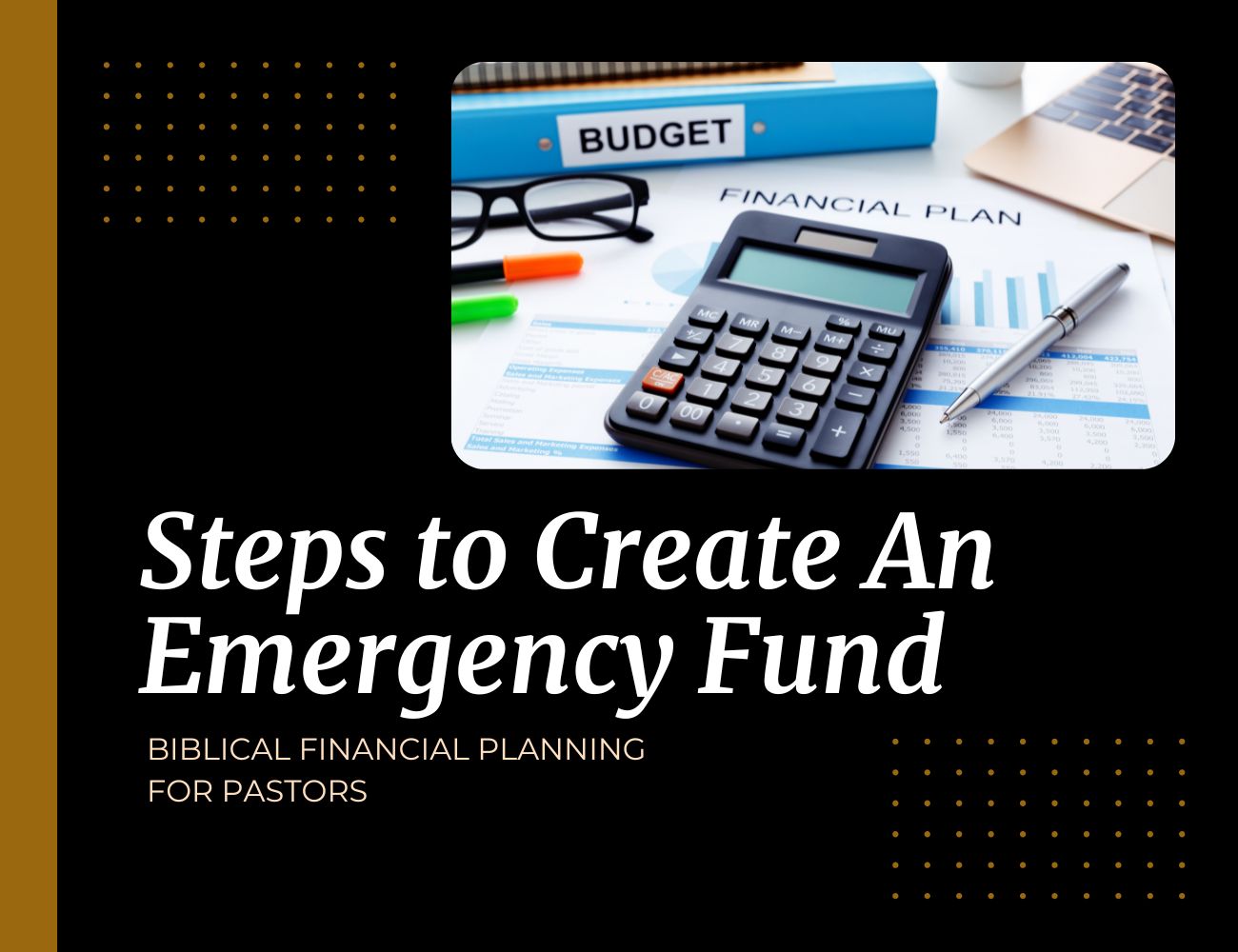Many pastors dedicate their lives to serving others, often putting their own financial future on hold. Recent studies show that 76% of pastors feel financially stressed about retirement, and only 1 in 3 has a solid retirement plan. This reality calls for immediate attention to retirement planning in ministry.
The Biblical Call to Stewardship
Financial preparation for retirement isn’t just about money – it’s about being a good steward of God’s resources. Proverbs 21:5 reminds us: “The plans of the diligent lead to profit as surely as haste leads to poverty.” This wisdom applies directly to retirement planning.
Challenges Pastors Face in Retirement Planning
Most pastors face unique financial challenges. A 2021 National Association of Evangelicals study revealed that 29% of pastors have less than $10,000 saved for retirement. Many deal with:
- Lower-than-average salaries
- Limited retirement benefits
- Complexity of housing allowances
The Power of Starting Early
Starting retirement planning early makes a significant difference. A pastor who saves $200 monthly at age 30 could accumulate over $300,000 by age 65. Waiting until age 45 to start would yield less than half that amount.
It’s Never Too Late to Start
The good news is that it’s never too late to start planning. Whether you’re beginning your ministry or nearing retirement, taking action now is essential. Steps include:
- Understanding your retirement options
- Setting clear financial goals
- Making informed savings and investment decisions
The Importance of Retirement Planning for Pastors
The average pastor’s salary ranges from $33,000 to $70,000 annually, making it difficult to save consistently. Research shows that only 1 in 4 pastors has a formal retirement savings plan.
Delaying retirement planning has serious consequences. A study by GuideStone Financial Resources shows that pastors who start saving at age 25 need to set aside 10-12% of their income, while those starting at 45 must save 25-30% to reach similar goals.
Understanding Clergy Retirement Benefits
Pastors have several unique retirement options, including:
- Denominational Pension Plans – These provide guaranteed income and may include death benefits for surviving spouses.
- 403(b) Plans – Similar to 401(k)s, these allow tax-deferred savings.
- Housing Allowance Benefit – Even in retirement, pastors can use pension or 403(b) distributions for housing expenses tax-free.
- Social Security Opt-Out – Ministers can opt out for religious reasons, but this means giving up Social Security and Medicare benefits.
Setting Retirement Goals
Planning for retirement requires a clear understanding of your financial needs. Consider:
- Housing costs – Mortgage, taxes, and maintenance.
- Healthcare costs – Medicare, insurance, and long-term care.
- Emergency fund – 3-6 months of expenses.
- Lifestyle changes – Travel, hobbies, and family commitments.
Set specific savings targets and review your goals annually.
Building a Retirement Fund
Small, consistent contributions grow significantly over time. Investing $100 per month consistently can result in substantial long-term savings.
Investment Strategies:
- 30s and 40s: 70-80% in stocks, 20-30% in bonds.
- 50s and 60s: Reduce stock exposure gradually.
- Index Funds: Low-cost, diversified investments with long-term growth.
Keep fees low! High fees can reduce retirement savings by thousands of dollars over time.
Navigating Tax Advantages for Pastors
Ministers have unique tax benefits that can boost retirement savings:
- Housing Allowance Tax Benefit extends into retirement.
- Self-employed ministers can deduct half of their self-employment tax.
- 403(b) and IRA tax advantages reduce taxable income and grow tax-deferred.
- Smart charitable giving reduces tax liability while supporting ministry work.
Planning for Healthcare in Retirement
Healthcare costs can take a significant portion of retirement savings. Medicare covers hospital and doctor visits, but not everything. Key considerations:
- Medigap Policies help cover gaps in Medicare.
- Long-term care insurance should be considered in your 50s or early 60s.
- Health Savings Accounts (HSAs) provide tax-free funds for medical expenses.
- Dental and Vision Care require separate planning, as Medicare does not cover them.
Managing Debt Before Retirement
Debt can limit financial options. Take control now:
- List all debts and create a repayment plan.
- Use the ‘Debt Snowball’ Method – pay off small debts first.
- Consider mortgage payoff strategies before retirement.
- Avoid high-interest credit card debt.
Creating Additional Income Streams
Many pastors find joy and financial stability in continued ministry work. Consider:
- Part-time ministry roles ($200-$500 per week)
- Writing books or devotionals ($3,000-$10,000 annually)
- Speaking engagements ($500-$1,500 per event)
- Teaching at seminaries ($2,000-$3,000 per course)
- Church consulting ($75-$150 per hour)
Biblical Perspective on Retirement
The Bible teaches wisdom in financial planning:
- Proverbs 6:6-8 – The ant prepares in advance.
- 1 Timothy 5:8 – Provide for your family.
- Proverbs 13:22 – Leave an inheritance.
- Luke 14:28-30 – Count the cost before building.
Next Steps for Pastors
- Review your finances. Assess income, expenses, and savings.
- Meet with a financial advisor. Look for clergy financial planning expertise.
- Take advantage of retirement education. Attend workshops or seminars.
- Set a review schedule. Check your plan every six months.
- Talk with your family. Discuss retirement goals and expectations.
- Work with church leadership. Plan for your transition and future needs.
- Update key documents. Review wills, beneficiary designations, and healthcare directives.
Start planning today! Your future self will thank you, and you’ll be a better steward of the resources God has given you.



